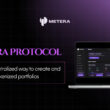Would you like to create your own non-fungible tokens, and not only that, would you like to sign them so that your authorship is recognized?
Works of art, be it literature, painting, music, or documents in general, minted as NFT, do not provide the signatures of the creators in order to verify their authenticity.
Non Fungible Tokens in Cardano
Cardano supports user-defined non fungible tokens (NFT) natively, without the need for smart contracts, and also, that those assets behave similarly to ADA, the main currency, but with the difference that native tokens can be created and destroyed.
It removes the unnecessary layer of costly complexity, and inherent inefficiency, such as occurs in Ethereum, that requires custom code to make tokens, defined by the user, compatible with the blockchain. This is an inherent weakness of Ethereum, because it leaves room for human error.
Metadata
The use of metadata in Cardano makes another substantial difference. Metadata is a description of native assets that are stored using identifiers that are not human-readable. The readable version of this information is stored off the blockchain, in public token registries. Empowering the community to own and configure these registries gives full trust in the datasets, as the users themselves own the data
Storage of NFTs
Current implementations of NFTs in Cardano are not fully decentralized, because they rely on third-party services to manage the storage and access of the asset, in the part that is not plain text.
Services such as IPFS/Filecoin or Arweave allow any type of information to be stored and accessed through its unique identifier, known as a hash. Leveraging Cardano’s metadata capabilities, the unique digital asset can be represented by a hash in a transaction, a lightweight log to obtain the origin of the asset, via a query to the external storage service.
The problem is that there is no guarantee of the continuity of these services for years to come, and then the assets could be lost.
There are very few user-friendly interfaces for minting NFTs in Cardano, and, I know of none of them that guarantee full ownership of the resulting asset by the original creators, since the actual minting occurs in a third-party service, and it is these that define the policy.
So, How Do We Do It?
Minting signed assets fully on-chain, allows creators to distribute authenticated and verifiable content, with long-term availability.
Thus, the C64 NFTs Minter is a lightweight wallet, which provides the ability to mint and sign non-fungible tokens (NFTs) on-chain, and from digital assets.
The idea of the development is to provide a tool so that, any artist or user, can upload assets to the Cardano blockchain in the form of metadata attached to native assets. In addition, the data will carry an identity stamp, so that it can be easily authenticated from websites, or artists’ business cards.
Each transaction in Cardano has a maximum size, if it exceeds it, it will be split into as many transactions as necessary to complete it.
Storing all the information in multiple transactions makes it expensive to create NFTs, and can load the blockchain with too much non-essential information, so this solution is most useful for some specific use cases.
Courtesy of the developer: demo presentation: C64 NFTs Minter (without minting process)
Technical Aspects
As a lightweight wallet, it will rely on third-party servers to interact with the blockchain, in the same way as Yoroi, so an option will be added during the minting process for the GUI to choose the blockchain endpoints, either Gimbalabs (Dandelion) or any other trusted source.
– Lift-wallet: https://github.com/CodingOnChain/lift-wallet
Cardan-meta-handler is adopted to embed any content type file. The use of the http-response standard makes the implementation simpler and more familiar to developers, as well as facilitating the processing of the asset due to its type declaration.
– Cardano-meta-handler: https://github.com/repsistance/cardano-meta-handler
Lightweight cross-platform desktop wallet for minting NFTs, and open source frameworks, ensures best practices and community adoption.
It adopts Yoroi’s Cardano serialization library, to build and serialize 100% on-chain metadata transactions, making the application backend free, and consequently making the wallet lighter.
– Cardano-serialization- lib: https://github.com/Emurgo/cardano-serialization-lib
When using a lightweight wallet you need a third-party service to interact with the blockchain, in the same way that Yoroi uses Emurgo servers. Being able to choose your own endpoints adds a new degree of freedom while promoting decentralization of these services.
Just as the wallet allows you to create new NFTs and add them to the blockchain, the wallet includes a gallery that queries any NFT stored on the blockchain.
– Decentralized endpoints proposal:
https://cardano.ideascale.com/a/dtd/Dandelion-Cardano-APIs-market/352562-48088
GitHub C64 NFTs Minter: https://github.com/jimcase/C64-Wallet
Author’s note: The team said it is evaluating the method it will use for digital signatures.
The Team
Jaime Caso Onzain, Project Manager. Full-Stack Developer. Emurgo Academy alumnus. Cardano Ambassador. Stake Pool [BOOST] Operator.
https://www.linkedin.com/in/jaime-caso
Roberto C. Morano, Consultant and Collaborator. Former DevOps leader at Emurgo. Co-founder of Gimbalabs. Operator/leader of Dandelion.
https://www.linkedin.com/in/rcmorano
Vicente Almonacid, PhD, Advisor. Yoroi-mobile, former R&D Engineer, Emurgo. https://www.linkedin.com/in/vicente-almonacid
Budget
Funds requested in USD 6500:
- 1 Project Manager position USD 2000 / month, for 3 months, as part-time work.
- Incentive program of USD 500 for pioneer artists in 100% on-chain NFTs minting.
DEADLINE: 3 months of development from receipt of funds.
INTELLECTUAL PROPERTY: Apache 2 license.
Proposal in: Catalyst FUND5










